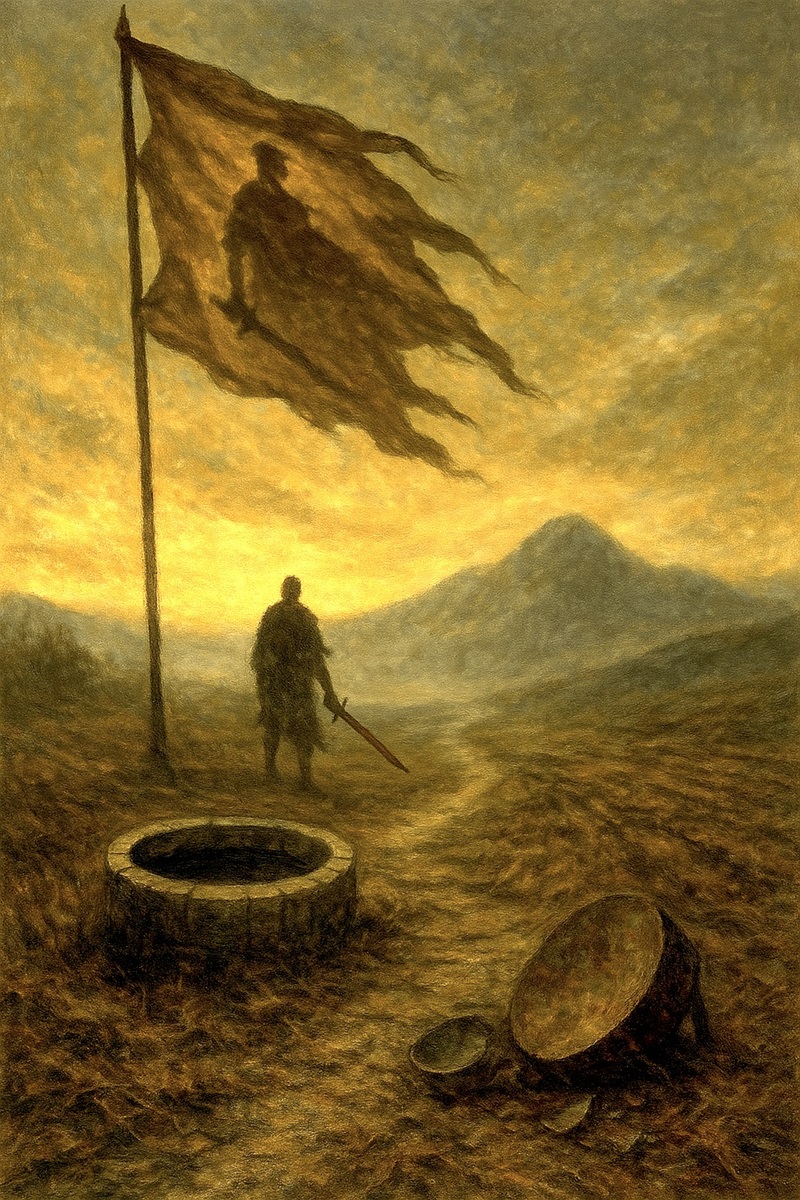旌旗高悬,未曾触地,忠义的光辉在风中猎猎,却照不见枯黄的田垄与荒芜的炊烟。刘备以“正统”之名踏入益州,如同风中执剑者,用锈迹斑斑的信念斩开了本已宁静的土壤。而后,诸葛亮在断裂的节奏中敲响战鼓,十万青壮在朝北的山路上消失,只留下空井与流失的春水。
刘璋、张鲁,沉默如井水,不惊不动,被历史称为昏暗,却保全了田野的温饱。英雄的光,从未为他们而点燃——但田野知道,那光是幻,是远,是不属于泥土的高度。
谁是罪人?谁为英雄?或许,历史不是回答的声音,而是回响的形状。它在风中飘扬,也在风中裂开。
The banners fly high, never touching the ground. The radiance of loyalty flutters in the wind, yet fails to light the withered fields and abandoned hearths. Liu Bei, in the name of “legitimacy,” stepped into Yizhou like a swordsman in the storm—his blade dulled by rusted ideals, slicing through a land once quiet and whole. Then came Zhuge Liang, striking the war drums in a broken rhythm—a hundred thousand youths vanished northward, leaving behind dry wells and the drifting spring water.
Liu Zhang and Zhang Lu, silent as deep wells—still, unmoving, called dim by history, yet they preserved the warmth of the fields and the quiet of daily bread. The hero’s light was never kindled for them—but the soil knows: that light is an illusion, a distance, a height never meant for earth.
Who bears guilt? Who wears glory? Perhaps history is not the voice that answers—but the shape of the echo. It flutters in the wind—and there, it breaks.

